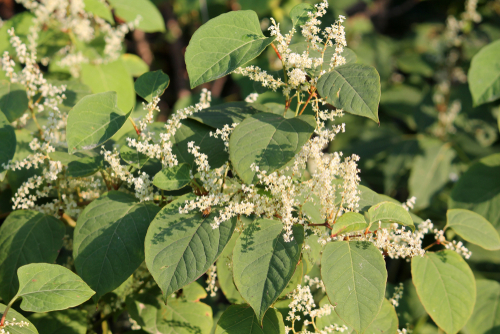HOMENEWS & INSIGHTS
Japanese knotweed and Property – new guidance issued
The Royal Institution of Chartered Surveyors (RICS) has published new advice for professional valuers and surveyors aimed at helping them understand and evaluate difficulties caused by Japanese knotweed.
The guidance note, entitled ‘Japanese knotweed and Residential Property’ sets out how to recognise the presence of the invasive plant, explains the challenges in detecting and identifying it and suggests that long-term guarantees, backed by insurance, will help curb the problem.
The Japanese knotweed problem
Japanese knotweed is an invasive non-native plant that spreads aggressively and can grow up to 10cm in a day. It can cause major damage to properties and infrastructure, pushing between cracks and expanding to push them further apart. It will regrow from even a tiny fragment of rhizome and can remain dormant underground for years.
If you are selling a property with Japanese knotweed present or where it has been present in the past, you must advise the buyers.
Professional companies exist that specialise in the removal of the plant. The best way of doing this is by removing the soil, sieving it, and replacing it with all traces of the rhizomes and roots removed. Herbicides are less effective and can be damaging to other plants and wildlife. Failure to control Japanese knotweed and allowing it to spread could mean a claim against you from a neighbouring property owner.
The new survey advice
The new guidance acknowledges that where a property is robust with substantial foundations, such as a house, there is minimal risk of structural damage. The plant is more likely to cause difficulties to less sturdy buildings with shallow foundations such as garages, conservatories and boundary walls.
Surveyors are advised to flag up the presence of Japanese knotweed on neighbouring properties where it is within three metres of the boundary.
It is also suggested that the plant can be controlled rather than eradicated. Nic Seal, founder of Environet UK, a specialist company dealing with the removal of invasive plant species said: “The new Guidance Note is cautious and sensible, recognising the very real risk Japanese knotweed poses to homeowners and lenders, and giving greater clarity to surveyors.
“The blunt ‘seven-metre rule’ has rightly been scrapped in favour of a more nuanced approach that allows surveyors to use their own professional judgement in determining the potential impact of Japanese knotweed. I’m pleased to see the focus is no longer only on the structure of the property and the risk of damage, which is rare, but also on amenity value – in other words, the effect of knotweed on the use and enjoyment of the garden.
“Equally importantly, it also recognises the problems that can result from encroachment of knotweed from adjoining land, requiring surveyors to flag infestations within 3 metres of the boundary on neighbouring properties.
“If there’s any criticism, it would be that the Guidance Note suggests control of knotweed may be a more appropriate goal than eradication. While herbicide treatment can be an effective approach in certain cases, there are often very good reasons to make eradication the goal – and by settling for ‘control’ the bar is lowered for the sake of a lower initial cost. Herbicide treatment is particularly inappropriate where the plant’s location could impact neighbouring properties and be subject to potential legal claims, or on more valuable properties where the diminution of value justifies the higher cost of removal.”
If you are considering buying a property with Japanese knotweed present, you are advised at the very least to request its complete removal and the provision of a guarantee that this has been done and that the situation will be remedied if it turns out that the plant is still present.
Despite a relaxing of RICs stance, buyers and mortgage lenders are likely to remain very wary of taking on a property that may have a continuing problem.
Contact us
For further advice or information please contact one of our Residential Property experts.
This article is for general information only and does not constitute legal or professional advice. Please note that the law may have changed since this article was published.
Share article
Our offices
Contact Us
5 Poole Road
Bournemouth
Dorset
BH2 5QL
Tel 01202 377800
9 Poole Road
Bournemouth
Dorset
BH2 5QR
01202 377800


